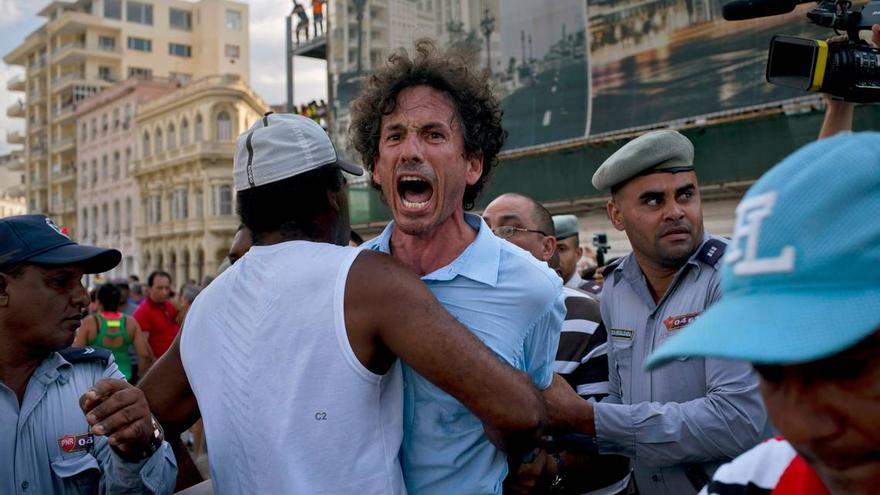
![]() 14ymedio, Havana, December 4, 2019 — There were at least 218 arbitrary arrests in Cuba during the month of November, a month which also saw the publishing of a Decree that legalizes or “whitewashes” spying on citizens, claimed the Cuban Observatory of Human Rights in its most recent report published this Tuesday.
14ymedio, Havana, December 4, 2019 — There were at least 218 arbitrary arrests in Cuba during the month of November, a month which also saw the publishing of a Decree that legalizes or “whitewashes” spying on citizens, claimed the Cuban Observatory of Human Rights in its most recent report published this Tuesday.
Havana, Matanzas, Villa Clara, and Santiago de Cuba were the provinces that were most affected by the arrests, said the organization headquartered in Madrid, adding that “dozens of those affected were also violently arrested, fined, and threatened by police.”
The majority of those arrested “were trying to perform political activities the headquarters of their organizations, attend Mass, or travel to another province or municipality of the country.” Many others were “besieged in their homes to prevent them from going out to the street during celebrations of the 500th anniversary of the city of Havana.”
The Cuban Observatory of Human Rights also denounced the Decree Law 389, which includes electronic vigilance. The new legislation “increases the arbitrariness of the state in practices that violate human rights, like the right to privacy and the inviolability of communication,” it detailed.
“The Cuban government has a long record of using technical resources to tap and later publicly air communications between persons who are committing no crime,” reminds the OCDH.
For its part, the Cuban Center of Human Rights (CCDH), led by the ex-political prisoner Martha Beatriz Roque, warned that “among the principle methods of harassment that the political police currently practices, is that of not allowing dissidents to leave their homes.”
Home arrests violate “the fundamental and inalienable rights of the human being, established for all Cuban citizens,” pointed out the independent organization in a report disseminated this week.
The Center also denounced the imprisonment of the opposition figure José Daniel Ferrer García and harshly criticized the editorial published by the official newspaper Granma against the leader of the Patriotic Union of Cuba; the editorial tries to foment in the Cuban population “hatred against those who defend liberty, human rights, and democracy.” A strategy also followed by the video “full of lies” broadcast on national television.
The organization cited 78 prisoners of conscience in Cuban prisons, 29 with long sentences for other crimes against national security, and 21 under leave and house arrest, for a total of 128 political prisoners, detailed the report.
With a number that differs from that of the OCDH, the Center reported 196 detentions during the month of November. Among them were 122 women, “who remain the most besieged, in particular the Ladies in White.”
The organization warned of a “peak in detentions during the visit of the King and Queen of Spain, around November 11,” also the time around festivities for the half-millennium of Havana and during the day of the third anniversary of the death of Fidel Castro, on November 25.
Throughout this month there were also reported “eight people who were not allowed to leave the country because of migratory regulations,” for a total of 208 who have been “regulated,” according to data provided by the Patmos Institute and which have been gathered in this report.
Translated by: Sheilagh Herrera
_______________________
COLLABORATE WITH OUR WORK: The 14ymedio team is committed to practicing serious journalism that reflects Cuba’s reality in all its depth. Thank you for joining us on this long journey. We invite you to continue supporting us by becoming a member of 14ymedio now. Together we can continue transforming journalism in Cuba.
